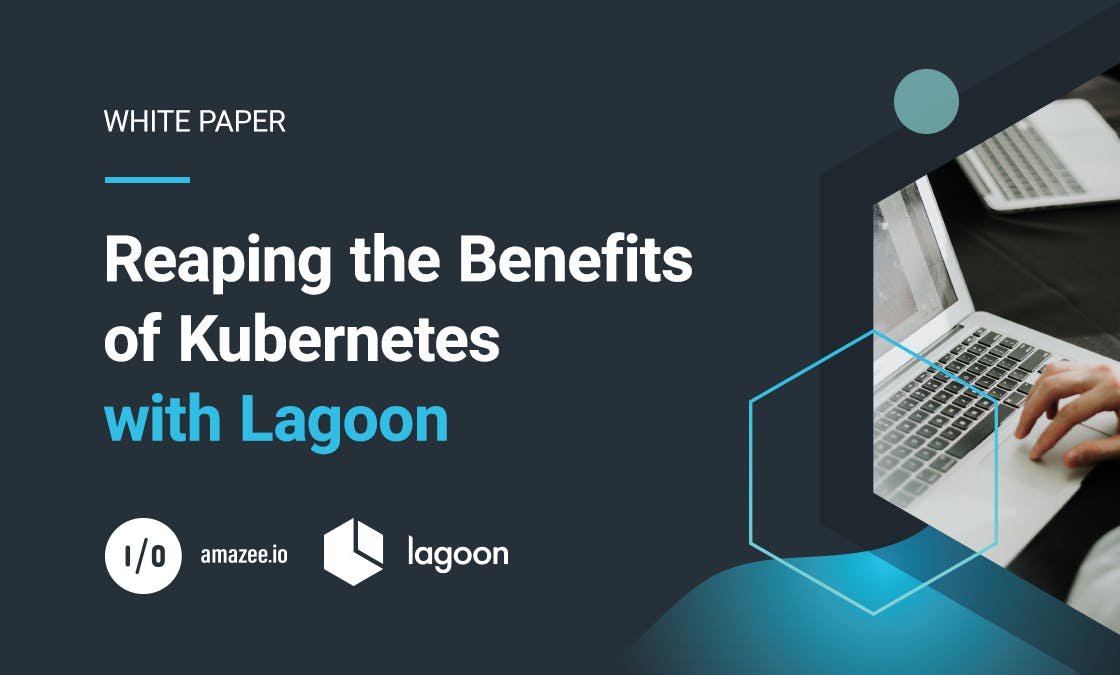Sophia Harris
|
Jun 29, 2022
|4 min read
Search Topic

The greatest solutions are often derived from the greatest needs. And at amazee.io, our team had the need for a hosting solution that checked all the boxes. We were struggling with our solution at the time, so we set out to hunt for the perfect one.
However, at that time, it did not exist. What we were looking for hadn’t been created yet.
Here’s what we did next:
In 2016, amazee.io realized that our existing infrastructure wasn’t future-proof. And that needed to change.
It wasn’t meeting the needs of our developers, and without tools that allowed for easy deployment, our teams were frustrated and at risk for system outages and security challenges.
Our teams also weren’t happy with their hosting solution, because while every piece of the platform was made with configuration management to allow for the fast setup of new servers, it lacked customizability for developers. This made everything take longer.
With the rise of decoupled Drupal, the need to run Node.js on the server-side, more requests for Elasticsearch, and different Solr versions, we knew we needed more capability.
Our existing tools were also not powerful enough, which meant our developer teams weren't getting their needs met (we didn’t have any Kubernetes tools before Lagoon.) Our team needed a solution for easier and faster logging, monitoring, and image security.
We had been using Docker for several years for local development, and we’d always had the idea to use it for everything in production. The only problem was the connection between local and production environments - there was no system that allowed us to test the exact same images and services locally AND in production.
Without a solution available to meet all these needs for our team, we decided to build one ourselves. Lagoon was created specifically to meet the exact needs of our team, which mirror the needs of so many other teams.
Lagoon is the solution that allows developers to locally develop their code and services with Docker and run the same system in production Kubernetes. This means the same container images, configurations, and code.
In line with a fully-open source hosting stack, Lagoon was sourced under Apache 1.0 in 2017. In 2020, amazee.io formed a dedicated team for Lagoon-specific projects. The rest of the amazee.io team - platform, security, and support - also contribute to Lagoon’s overarching functions.
Lagoon now allows our teams not only to deploy into Kubernetes easily, but also provides a solution for production-grade systems with integrated logging, monitoring tool support, and security scanning. Lagoon is able to abstract Kubernetes and its complexities into fully-automated deployments, which lifts an enormous burden from developers.
Most developers are familiar with certain niche tools. For example, a Drupal developer knows the tools needed to make a Drupal site thrive, but they couldn’t be expected to be a Kubernetes expert as well. (That could take years of time, training, and learning.)
As a Drupal developer, one wouldn’t need to know about things like scaling and logging, because they’ve been able to reproduce production sites locally by focusing on building efficient, performant, secure websites. In other words - most developers excel in their area because their current knowledge and skills are based on necessity. They wouldn’t necessarily have other specific niche knowledge, like Kubernetes - which many IT leaders are now asking for.
While learning and using Kubernetes is possible, it takes a very long time, and the learning curve is steep. Even if a developer learns and understands Kubernetes, there is still some manual work involved with it, like communicating, orchestrating, and overseeing containers and their status. This can become overwhelming with many sites and containers, which is why Lagoon was created to automate this process - removing the need for developers to manually oversee the Kubernetes containers.
While Kubernetes alone can make sure containers are working together properly, some external resource is needed to communicate with the containers and ensure they know how to do that.
Lagoon automates this communication with Kubernetes - from what needs to be orchestrated to what specifically is inside each container.
Lagoon, in turn, tells Kubernetes what it should do and how - so developers don’t need to worry about that part anymore. After orchestrating the containers, Lagoon comes back to the developer with a full build report, so even though developers didn’t do the process manually, they are well aware of how all the containers are running.
Lagoon can provide a solution for developers who want to do more - without waiting.
Who else is Lagoon for, and what are the specific benefits?
What industries does Lagoon pair best with?
How can I start using Lagoon?
Find out in the full White Paper.

